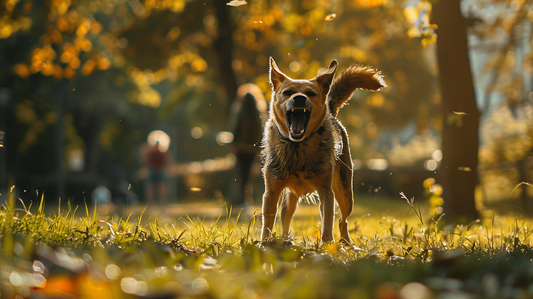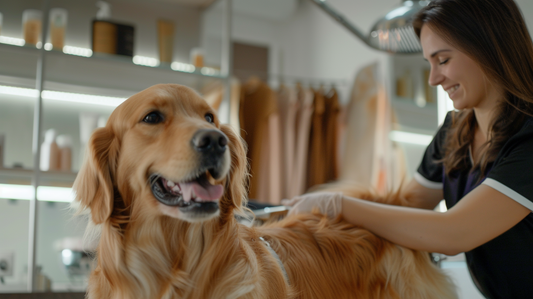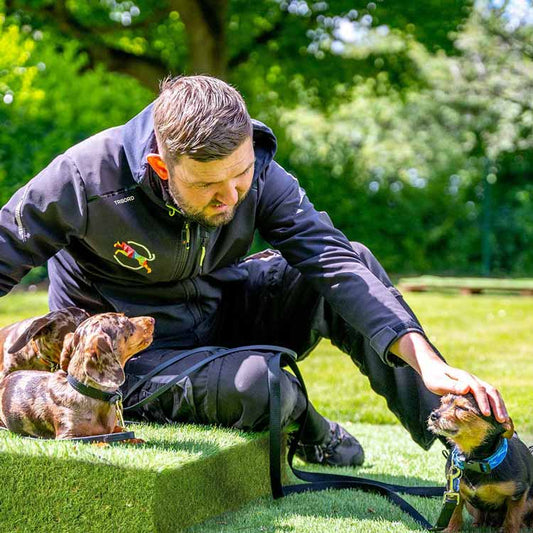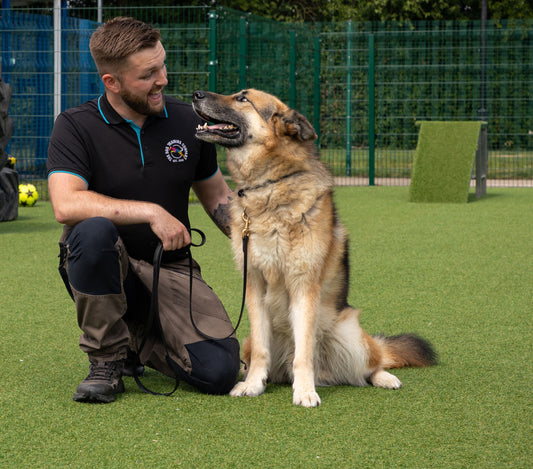
Rescue Dog Rehab: Are You Loving Them the Right Way?
The Pitfalls of Over-Compensating for Your Rescue Dog
Welcome, fellow dog lovers! Are you over-compensating for your rescue dog? It's no secret that we have a soft spot for these furry friends who've faced neglect or mistreatment. However, in our desire to shower them with love and affection, we might unintentionally hinder their growth and confidence. In this blog, we'll explore how to strike the right balance and create a nurturing environment for your rescue dog without overdoing it.
Misguided Love and Its Consequences You might think that spoiling your rescue dog with treats, toys, and attention is the best way to make up for their past. Unfortunately, this approach can backfire, as it doesn't teach them to trust you or be a confident pet. Instead, it only reinforces the idea that you're a resource for goodies rather than a reliable, loving companion.
Rehoming a Dog: Do's and Don'ts
8 Tips for a Smooth Transition Here are some essential pointers to consider when rehoming a rescue dog:
- Don't let their past dictate your actions. Focus on giving them a fresh start.
- Don't assume the worst. Many rescue dogs have unknown histories, so concentrate on creating new positive experiences.
- Don't make excuses for bad behaviour. Address and correct them instead of justifying them.
- Don't be lazy. Your rescue dog needs your time, effort, and dedication to thrive.
- Be proactive in your training approach. Set goals and work diligently to achieve them. The Dog Training Company offers valuable resources and guidance for dog training in various locations, such as Sheffield, Doncaster, Harrogate, Leeds, and Wakefield. Our dog training consultation service can help you find the right approach for your rescue dog.
- Stop feeling guilty for your new dog. They're now in a loving home, so show them what a healthy relationship looks like and move forward.
- Take the time to teach your dog the behaviours you expect from them; don't assume they already know.
- Provide structure and routine. Dogs, just like humans, thrive on consistency and predictability.
Dealing with Behavioural Issues in Your Rescue Dog
When to Seek Professional Help If your rescue dog displays various behavioural issues upon arrival, don't hesitate to seek professional guidance. Expert trainers and behaviourists can help you build a respectful, long-lasting relationship while addressing behavioural problems, ultimately resulting in a well-rounded, happy dog. Learn more about how to find a good dog trainer to ensure you're working with someone who understands your dog's needs and has the experience to help you both succeed.
The Importance of Commitment in Dog Ownership
A Lifelong Promise to Your Furry Friend Lastly, it's vital to remember that dogs are not disposable. When you bring a dog into your life, you're committing to nurturing them and being a loving companion for their entire life. If you're not ready for this level of dedication, it's better to hold off on getting a dog.
Rescue dog adoption is an admirable and compassionate act. However, it's essential to strike a balance between providing love and support while also setting boundaries and establishing a healthy relationship. By following the guidelines above, you can ensure your furry friend not only feels safe and loved but also develops into a well-behaved and confident companion. Remember, the key to a successful rescue dog experience lies in patience, understanding, and commitment. Embrace your role as a loving pet owner and cherish the bond you create with your new four-legged family member.
FAQs:
Q: What if my rescue dog's history is unknown?
A: Many dogs from a rescue centre have missing or incomplete histories. Instead of dwelling on the unknown, focus on providing new positive experiences and building a strong relationship with your dog.
Q: How can I help my rescue dog feel more secure in their new home?
A: Establish a routine, provide a safe space (like a crate or designated area), and gradually introduce them to new experiences and environments. Consistency, patience, and positive reinforcement are vital in helping your dog feel secure.
Q: When should I seek professional help for my rescue dog's behavioural issues?
A: If your dog displays multiple behavioural issues or if you're struggling to address specific problems, it's wise to consult a professional dog trainer or behaviourist for guidance and support. The Dog Training Company offers a comprehensive list of resources and articles on various dog training topics to help you better understand your dog's needs.
Q: How do I prevent over-compensating for my rescue dog's past mistreatment?
A: Avoid indulging your dog with excessive treats, toys, and affection. Instead, focus on building trust, setting boundaries, and providing structure through consistent training and positive reinforcement. The Dog Training Company has an informative article on the dangers of treat training, which can help you understand the risks of using treats excessively.
In Conclusion
Adopting a rescue dog is a rewarding and life-changing experience for both the dog and the owner. By striking the right balance between love, support, and discipline, you can create a nurturing environment that allows your rescue dog to thrive. Educate yourself on proper training techniques and dog care by exploring resources such as The Dog Training Company's blog and their informative articles, including The Top 10 Tips for a Thriving Dog. By being patient, understanding, and committed, you can foster a strong, lasting bond with your new four-legged family member and help them become the best version of themselves.
Remember, your rescue dog's past experiences may have shaped them, but their future is in your hands. By providing a loving and structured environment, you can ensure that your rescue dog transitions smoothly into their new life and becomes a well-behaved, confident companion. So, embrace your role as a loving pet owner, and cherish the incredible bond you create with your new four-legged family member.
As you continue to work with your rescue dog, it's essential to stay informed about the latest advancements and trends in dog training. For instance, you can explore articles such as The Rise and Fall of Clicker Training, which can give you valuable insights into the most effective methods to use with your rescue dog.
Ultimately, the journey with your rescue dog will be filled with challenges, triumphs, and endless learning opportunities. Keep your commitment to your furry friend at the forefront of your mind, and remember that your love, patience, and guidance are the most valuable gifts you can give them. By staying informed and utilising the wealth of resources available at The Dog Training Company, you'll be well-equipped to navigate the joys and challenges of rescue dog ownership.






